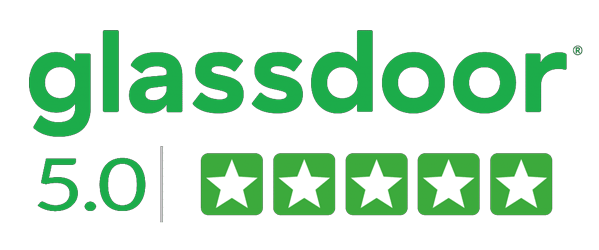
How to Deal With Job Interview Stress!
Congratulations on being asked to attend a job interview. It’s a good opportunity that you deserve to get. However, this opportunity is under threat and could be lost by an enemy that you can not imagine, it’s your anxiety and nervousness! Know how to deal with job interview stress and guarantee you’ll get your dream job.
Signs of Job Interview Stress
Your responses, reactions, and ways of thinking can all exhibit various symptoms of job interview stress. This sends the interviewer the wrong message; you’ll come across as an inexperienced candidate with low self-esteem. Signs of job interview stress include:
- Racing heartbeat
- Nausea
- Sweating
- Blushing
- Fear that the anxiety will spiral out of control
- Breathing difficulty
- Dizziness
- Cracking voice
- Racing thoughts
- Irrational thoughts
How can you then avoid this unnecessary pain? And what should you do if it occurs during the interview?
How to Deal With Job Interview Stress Before You Enter the Room
Stress does not exist suddenly in a moment, it’s a condition that results from the accumulation of numerous reasons and mistakes. With the following tips, you’ll know how to prevent stress from leaking into your mind and keep the wheel in hand.
- Get Prepared
What do you know about your potential employer? What questions could the recruiter possibly ask? What is the expected salary for this job? All these questions might pop up in your head before attending the interview, so you should take care of them and do your research to gather all possible information that helps you feel comfortable and confident during the interview. Also, prepare the questions that you need to ask at the end of the interview.
- Practice Self-Care
Every individual has their own special quality time, doing sports, reading a book, or any other activity that makes them feel satisfied. In general, taking care of your body and mind is the best way to get rid of any kind of stress. In order to have a perfect interview experience, try to cut down on caffeine and get enough sleep for that day.
Self-caring also involves practices that help you pass the interview successfully, where practice makes perfect. Try to apply role-play methods with a friend or sibling to overcome any fears that could face you during the interview.
- Plan the Day of the Interview Properly
Planning the actions and activities of the interview day will save a lot of time. Start with a short walk in the surroundings that allows you to get exposed to sunlight. Eat a healthy breakfast, full of vitamins, minerals, and proteins. If you have a family member or a friend whose warm talk lets you feel relaxed and clear-minded, don’t hesitate to call or meet them if they’re available.
Try to get the clothes you’ll put on ironed earlier this day or the previous night. Also, get the CV, resume, or portfolio printed before that day to avoid any issues that could occur with the printer. Avert last-minute anxiety! Don’t forget to bring a pen and a notepad, you might need them.
- Set a Plan for Afterwards
What will you do right after this interview is over? Will you return home? After the interview, arrange a lovely activity and carry it out. Your thinking will become more activity-oriented as a result, which will reduce stress. , which will keep you concentrated throughout the interview. You’ll carry out the plan as soon as you’re finished.
- Meditate or Listen to Relaxing Music
It is best to engage in activities that will help you manage your anxiety and let whatever is bothering you go before this interview. One of them might be meditation. Yoga could be beneficial as well. If you’re not a fan of yoga or meditation, put on some calming music that you enjoy listening to and that helps you decompress.
- Embrace Positive Self-Talk
Positive self-talk, according to psychologist Dr Grace Tworek, is a powerful tool for boosting confidence, reducing anxiety, and handling difficult situations with ease. Your inner wounds are healed by the language you use when talking to yourself. Imagine yourself feeling good as you engage in your favourite activity after the interview.
- Express Yourself and Do Not Memorize
Sometimes, it’s you who makes things more stressful for yourself. It is not advisable to memorize answers to interview questions because you risk forgetting a portion of the response and finding yourself in a stressful situation. Simply organize your response, decide which points you want to emphasize, and you’ll talk about each one in order of importance. Increase your practice and observe your responses in front of a mirror.
- Diminish the Unknown
It’s acceptable to get in touch with the interviewer and ask them if you have any questions about any aspect of the interview. It might include suggestions for what to wear or even more information regarding the headquarters’ location.
- Visualize Success
You get the much-needed relief you require when you visualise getting the interview pass. Sit in a quiet area of your home and allow that scene to permeate your veins. You’ll experience a rush that will signal to you that you are prepared for the interview and ready to rock the room.
- Arrive Early and Relax
Being early gives you the advantage in an interview; additionally, spending time in the waiting area or at the reception may cause you to unintentionally notice aspects of your potential workplace. As you sit back and take in your surroundings, you’re forming first impressions that will help you when you walk into the interview room.
How to Deal With Job Interview Stress once you are inside
Here are some helpful suggestions that you can use as defensive techniques if you still experience difficulties during the interview despite your efforts to protect yourself from stressful thoughts and other triggers.
- Consider the Interview as a Dialogue
When you put yourself in the condition of investigation, you’re actually losing the game. Approach the interview as a dialogue in which both you and the employer learn more about one another. Adopting this mindset gives you more confidence and turns the interview into a peer-to-peer meeting.
- Neither a Friend nor an Enemy
It is not a realistic picture of you to treat the interviewer as an adversary who wants to drag you down the hill. They aren’t trying to harm you; they’re just doing their jobs. The only objective of this interview is to demonstrate your best self and aid in their accurate assessment of your skills and qualifications.
- Don’t Underestimate Yourself
Standing on a firm foundation of strengths and accomplishments gives you much more self-assurance and protection against any self-deprecating remarks about being a loser or unqualified. Let the interviewer do the evaluation, not you.
- Normalize
It’s normal to feel a little stressed, don’t panic about that. The most important thing is not to let the interviewer capture the clue that proves your anxiety. Stay calm and determined with every answer.
- Control Your Body Signals
Crossing your arms or lowering your forehead might send negative signals to the interviewer. By squaring your shoulders outwards and sitting with a straight backbone, you will be a confident idol.
- Breath, Smile and Take Your Time
Take a moment to listen to each question that is posed to you, then try to pause for a moment before responding. Talking slowly is effective because it gives you a chance to breathe and think of a better response. This safeguards you from trembling speech. Attach a simple smile to every answer to make the interviewer feel comfortable while listening to you.
- Use Your Stress as Adrenaline
As was previously stated, a little stress won’t hurt and might even be beneficial. Adrenaline is released when you are under stress, which gives you the drive you need to interact positively with the interview questions.
- Accept the Fact That Mistakes Sometimes Happen
Dealing with the fact that despite taking all the precautions to keep yourself calm, mistakes might happen and anxiety could take control will help you feel satisfied with the results, whatever they are.
There Are Always Other Jobs Out There
The last strategy you must use before walking into the interview room is to calm yourself by imagining the worst-case scenario. Being turned down is not the end of the world; you might find a better opportunity elsewhere, and being rejected might turn out to be an opportunity.
Still Can’t Get It All?
Whitecollars is the best in providing high-quality career counselling services that help you land your dream job that meets your qualifications and has the benefits you’re looking for. Check out our career counselling services to learn how we can guide you toward a career in a clear, methodical manner.



